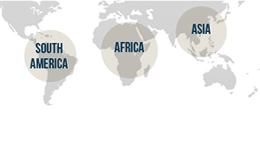Dengue – Day biting Mosquitoes
March 12th, 2024
Dengue Fever is relatively common in travellers. Some studies show 1% of travellers to the tropics are exposed to the dengue virus. It is often not diagnosed correctly or may be mistaken for something else. The only way to confirm someone has dengue fever is to have a blood test. Fever after visiting these areas could also be malaria, which needs a test too.
How does one catch Dengue?
Dengue is transmitted by mosquito bites.
Dengue mosquitoes breed easily in cities. The dengue mosquito can breed in a pot plant saucer.
.
A city with infected persons + building sites + monsoon = great recipe for Dengue.
.
The global incidence of dengue has grown dramatically in recent decades – since we started travelling on planes and carrying Dengue infected people to new areas.
About two-fifths of the world’s population are now at risk. WHO currently estimates there may be 50 million dengue infections worldwide every year. Dengue is found in tropical and sub-tropical climates worldwide, mostly in urban and semi-urban areas.
Dengue is commonly reported from South East Asia (especially in Thailand from March to July), India, the Pacific islands and the Caribbean.
Sequence of illness
About 1-2 weeks after the mosquito bite, a mild runny nose develops, followed a few hours later by the sudden onset of fever, a splitting frontal headache, and severe muscle and joint pains. (Dengue is sometimes called break-bone fever.) Pain behind the eyes is characteristic. Some persons notice a change in taste sensation. A rash occurs in 60% of sufferers. The rash can be flat or slightly raised, red or pink, with spots or blotches. It is usually present on the trunk, limbs, palms and soles. Other diseases can cause a similar-looking rash. Jaundice ( yellow skin) is rare.
Severe symptoms usually last one week, with tiredness persisting for several weeks after. Sometimes, after 2 to 3 days of illness, the fever and pains appear to settle for a few days, and then symptoms return, though less severely. Usually, sufferers make a full recovery.
Summary of common features of dengue:
· Fairly sudden onset
· Fever
· Headache – especially pain behind the eyes
· Joint or muscle pain
· Rash
Some persons who contract dengue do not have much in the way of symptoms.
Although a seriously unpleasant illness, serious complications are rare from the first attack of dengue; However, there are four strains of the dengue virus.
If you are exposed to a different strain at a later time, the second attack is likely to be more serious than the first. A second attack can cause dengue shock, which can be fatal if not treated properly. Dengue shock can cause the sufferer to develops excessive bleeding into the skin, mouth, nose and internal organs …leading to a life threatening drop in blood pressure. The technical term is Dengue Haemorrhagic fever, and it is a leading cause of serious illness and death among children in some Asian countries
.
How do you avoid Dengue Fever?
Infected humans are the main carriers and multipliers of the virus, serving as a source of the virus for uninfected mosquitoes. It is spread from person-to-person by a mosquito (Aedes aegypti), which bites during the day. If you sleep during the day you are especially at risk, as you may be a sitting duck for passing mosquitoes.
The best way to avoid Dengue is to avoid bites from mosquitoes in the daytime.
Vaccine to protect against Dengue?
There is a vaccine in use in Europe called QDenga – it is used for persons 4-60 years ago, residing long term in a Dengue risk country and who have already had one attack of dengue. The goal is to prevent those vaccinated from developing the severe dengue that occurs after the second attack.
There are different types of Dengue vaccines but both types are generally only given to people who have definitely had Dengue diseaes before. It is not given immediately after an attack of Dengue Fever, as the risks of severe dengue are relatively low for the first 2 years after an attack. It is not a general travel vaccine like a Hepatitis A vaccine requires a rather lengthy discussion with a doctor experienced in its use.
In Australia, the dengue vaccines have to be ordered specially, and it can take about 6 weeks for travel clinics to get it in. They may cost about $1000 for the course. The most common vaccine is given as 2 doses given 3 months apart and to be effective, the course should be completed at least 2 weeks before travel to a risk area, so it takes some advance planning. It cannot be given to persons who are immunosuppressed.
There is a nice summary of one of the vaccines vaccine at this Belgian site
Interestingly, the vaccine is available in Thailand more cheaply than in Australia.
Leave a Reply




Hi Deb,
Great blog! Came across your work on twitter and glad that I did 🙂 Will be adding your site to our resource directory now and will be looking forward to future postings!
Take care,
Phil